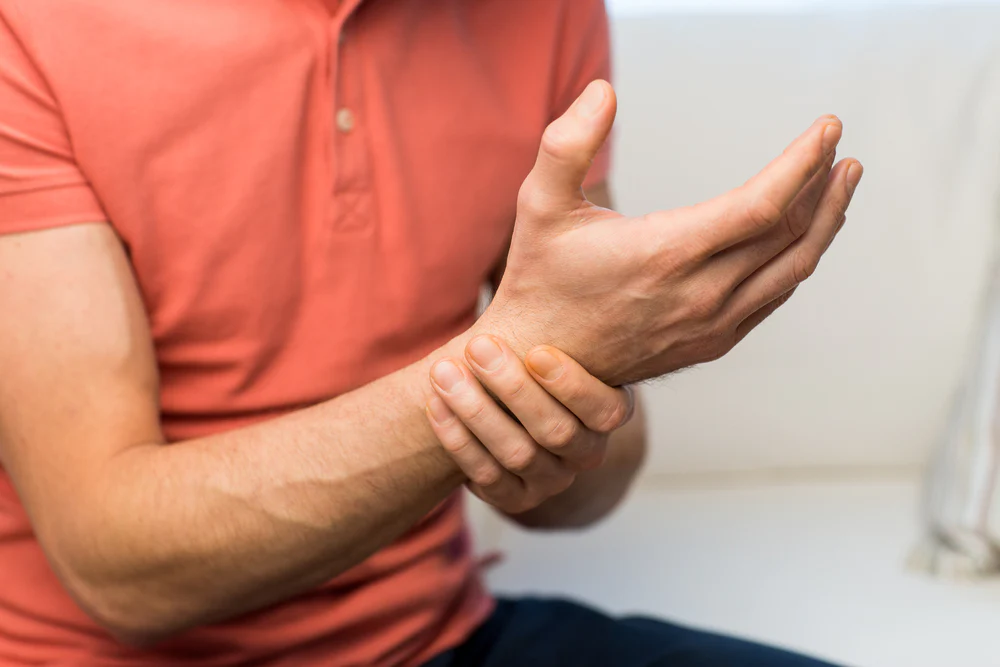Sleep Disorders and Conditions
Is Sleep Paralysis an Indicator of a Potentially Serious Problem?
Sleep paralysis is a common phenomenon that affects many people and can be quite frightening. It occurs when a person wakes up and is unable to move or speak for a few seconds or minutes. Although it is usually not a sign of a serious underlying problem, sleep paralysis can be a symptom of other sleep disorders or medical conditions. In this blog, we will explore what sleep paralysis is, what causes it, and how it can be managed.
Sleep paralysis is a condition that occurs when a person wakes up and is unable to move or speak for a few seconds or minutes. This happens because the body is not moving smoothly through the stages of sleep, and the brain is still in a state of sleep while the body is awake. While this can be a scary and uncomfortable experience, sleep researchers conclude that it is not usually a sign of a serious underlying problem.
Throughout history, sleep paralysis has been described in many different ways and often attributed to supernatural causes, such as night demons, old hags, or alien abductors. However, these stories are not based on scientific evidence and are simply attempts to explain a mysterious and frightening experience.
Although sleep paralysis is usually not linked to psychiatric problems, it can be associated with other sleep disorders, such as narcolepsy, and certain medical conditions, such as migraines or sleep apnea. If you experience frequent episodes of sleep paralysis or it is affecting your quality of life, it is important to talk to your healthcare provider to rule out any underlying medical conditions and to discuss treatment options.
What is Sleep Paralysis?
Sleep paralysis is a temporary condition where a person feels like they are awake but cannot move or speak. It typically happens when someone is falling asleep or waking up, and their brain is in the process of transitioning between being awake and asleep. Sleep paralysis can last for a few seconds or a few minutes, and during this time, the person may feel like they are being held down or unable to breathe.
Sleep paralysis is often accompanied by a feeling of pressure on the chest, as if someone or something is sitting on top of them. This can be a very scary and unsettling experience for those who go through it. Sleep paralysis can sometimes be a symptom of other sleep disorders, such as narcolepsy, which is a condition where a person has an overwhelming urge to sleep at inappropriate times due to a problem with the brain's ability to regulate sleep.
While sleep paralysis can be frightening, it is usually not harmful and does not require medical treatment. However, if it happens frequently or is interfering with a person's ability to sleep, it is important to speak to a healthcare professional. They can help identify any underlying sleep disorders and suggest strategies to manage sleep paralysis.
When does sleep paralysis typically happen?
Sleep paralysis is a common and usually temporary condition that can be frightening to experience. It can happen when you are falling asleep or waking up. There are two main types: hypnagogic, which occurs as you are falling asleep, and hypnopompic, which happens as you are waking up.
What occurs during hypnagogic sleep paralysis?
When you start to fall asleep, your body gradually loosens up. Normally, you become less aware of this process, so you don't notice anything different. But, if you stay conscious while drifting off to sleep, you might feel like you can't move or talk.
What is Hypnopompic Sleep Paralysis and how does it happen?
When you sleep, your body goes through two types of sleep: REM and NREM. Each cycle of these types of sleep lasts about 90 minutes. NREM sleep happens first and takes up most of your sleep time. During this time, your body relaxes and recharges. Then you shift to REM sleep, where your eyes move quickly, and you dream. But during this phase, your muscles are "turned off". If you happen to wake up during REM sleep, you may realize that you cannot move or speak. This experience is called hypnopompic sleep paralysis.
Who gets sleep paralysis?
Sleep paralysis is a common condition that affects up to 4 out of every 10 people. It is often first noticed during teenage years but can happen to anyone, regardless of age or gender. Family history may also play a role in the development of sleep paralysis.
Other factors that may be associated with sleep paralysis include:
Lack of sleep
Irregular sleep schedule
Mental health conditions like stress or bipolar disorder
Sleeping on your back
Other sleep disorders such as narcolepsy or leg cramps at night
Taking certain medications for ADHD
Substance abuse
Family history
Wondering how sleep paralysis is diagnosed?
Sleep paralysis is a condition where you find yourself unable to move or speak for a short period when falling asleep or waking up. This is a common and generally harmless condition, but if you are concerned about your symptoms, it is best to talk to your doctor.
You should see a doctor if you feel anxious about your symptoms, if you feel very tired during the day due to your symptoms, or if your symptoms are keeping you up at night.
To diagnose your condition, your doctor may ask you to describe your symptoms and keep a sleep diary for a few weeks. They may also discuss your health history, including any known sleep disorders or family history of sleep disorders. Your doctor may refer you to a sleep specialist for further evaluation, or conduct overnight sleep studies or daytime nap studies to rule out any other sleep disorder.
What Are the Remedies for Sleep Paralysis?
If you experience sleep paralysis, you may not need any treatment as it usually goes away on its own. However, if you are anxious or have trouble sleeping due to an underlying condition such as narcolepsy, treating that condition may help. Treatments for underlying conditions may include various options that can be discussed with your doctor:
Ensuring adequate sleep duration of six to eight hours every night by adopting healthy sleep practices
Addressing any mental health issues that could be contributing to sleep paralysis
Treating any co-existing sleep disorders, such as leg cramps or narcolepsy
Taking prescribed antidepressants to regulate sleep-wake cycles
Coping with sleep paralysis: What can you do?
If you experience sleep paralysis occasionally, there are things you can do at home to manage it. Firstly, ensure you get enough sleep and try to reduce stress before bedtime. You could also try sleeping in different positions, especially if you usually sleep on your back. However, if sleep paralysis regularly affects your sleep, it's important to see your doctor for further help. So don't worry about scary things like demons or aliens, as there are steps you can take to control this disorder.
Sleep Disorders and Conditions
Sleepless in Psychiatry: Unraveling the Role of Sleep in Neuropsychiatric Illnesses
Sleep Disorders and Conditions
When Sleep Disorders Clock In: Insomnia’s Impact on Productivity of Young Adults
Sleep Disorders and Conditions
Why Does My Body Twitch When I Sleep
Sleep Disorders and Conditions
Hypnic Jerk: Why Do I Twitch in My Sleep?
Sleep Disorders and Conditions
When your Arm Falls Asleep: Causes and Treatments
Sleep Disorders and Conditions







